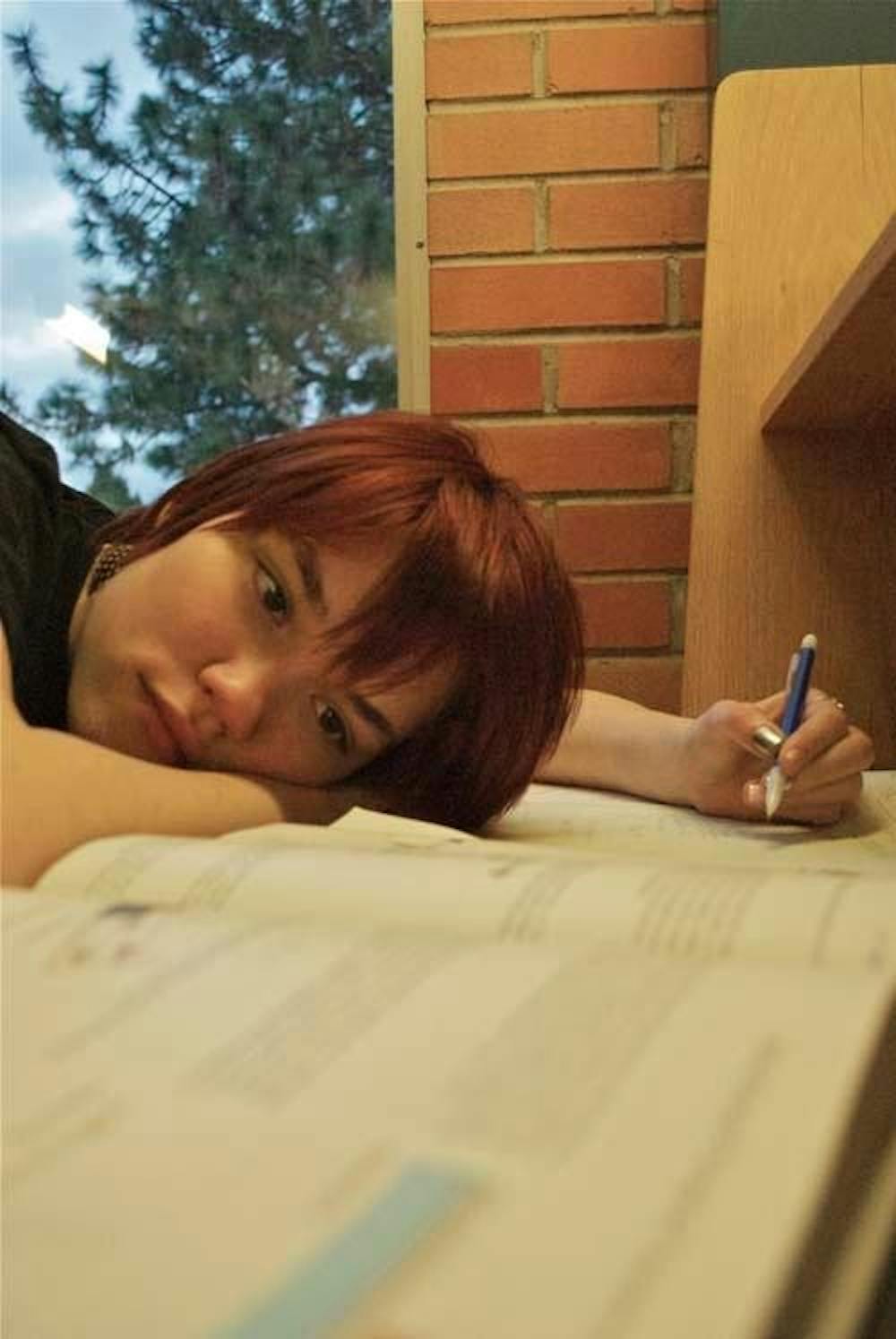(Kayla Wong | The Beacon)
By Will Lyons, Staff Writer -- lyons14@up.edu
Sophomore year struck swiftly for Debra Vitorelo.
"I broke down and cried after the first physiology exam last semester," Vitorelo said. "I learned the hard way sophomore year is about having to actually do work and study more than one day before the test."
According to Mike Walsh, director of residence life, many sophomores experience the "sophomore slump," which can make school a struggle for second – year students.
"The sophomore slump happens when students don't transition from freshman to sophomore year well," Walsh said. "It's a moment of students spinning their wheels and getting stuck in a rut."
Walsh is working on his doctorate in education at Portland State University. His thesis focuses on traditional age (19 – or – 20 – year – old) sophomores and their needs compared to freshmen.
"Not all sophs slump, but when they do it can be bad," Walsh said. "Sometimes they slump hard and leave school, which we don't want."
According to Karen Nelson, UP director of Institutional Research, the data for current juniors shows the class lost 11 percent of the original class after freshman year and another seven percent after the sophomore year.
"Freshman year you're figuring things out, but now you've got to work harder," sophomore Tom Bluth said. "It doesn't make sense to complain about homework when we pay a lot of money to go here."
Jeromy Koffler, director of student activities, thinks pressure to find yourself is a big part of the sophomore slump.
"(The sophomore year) continues to be about identity exploration, but also ‘where do I fit in, and what am I called to do,'" Koffler said. "It's also a good time to seek out leadership opportunities."
Bluth agrees.
"It's important to know yourself," Bluth said. "I've learned this year to make time for myself as well as my friends and school."
According to sophomore and Peer Health Educator Devin Helmgren, sophomores also struggle with social transitions.
"You might find that your friends of last year aren't as strong," Helmgren said. "If your friend's interests don't align with yours anymore it can be stressful."
Sophomore Daphne Baracena agrees.
"You're trying to figure out academics but you're also gauging friendships," Baracena said. "What do you actually love and who do you want to share that with?"
Max Kalchthaler, assistant director of Career Services, said sophomores frequently visit Career Services for help.
"Sophs come in for a variety of reasons, such as taking the O*Net Interest Profiler, seeking internships and doing practice interviews," Kalchthaler said. "I definitely feel for sophomores. They have a lot more responsibility without too much more freedom."
According to Koffler, sophomores must choose a major by the end of their second year. He said there are many ways to cope with the pressure.
"One of the biggest realizations I think sophomores have is, ‘Wow, I can't do this by myself,'" Koffler said. "A lot of times sophomores need to be reminded about the services on campus."
Walsh plans to help implement sophomore – friendly programs at UP, such as courses to help advisors to understand sophomore specific issues and class events.
"The worst thing you can do is treat a sophomore like a freshman," Walsh said. "Peer, faculty and advising support continues to be key for sophomore year. Sophomores ask many big questions like ‘What major should I pick?' and ‘Who are these friends I've made?'"
According to Koffler, Student Activites will be hosting a sophomore – only event for the third year in a row.
This year the event will be on Feb. 24. Sophomores are invited to dinner and a Winterhawks professional hockey game free of charge.
Helmgren encourages students to help each other as well.
"If you're a friend of someone struggling, reach out to them," Helmgren said. "Even if you think they're not having a rough time you might not know the half of it."








